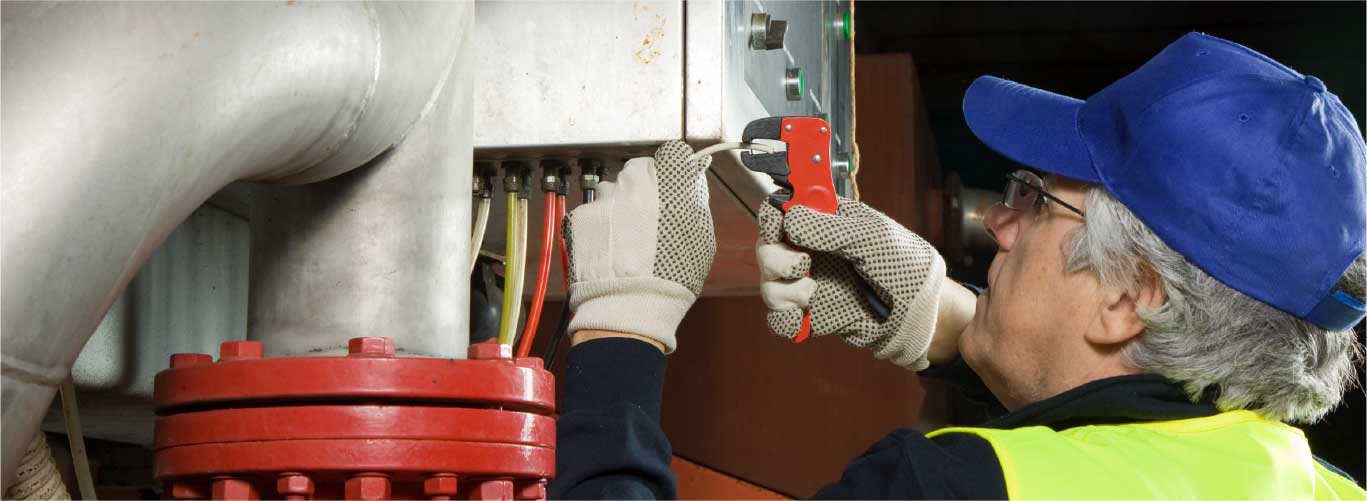Course Details
Your Growth, Our Mission

Course Description
Maintenance, Reliability and Asset Management Best Practices are critical for every successful individual and company. It is the job of the maintenance professional to optimize the maintenance effort using a structured and systematic approach. This course covers all the fundamentals of Maintenance, Reliability, and Asset Management that a suitably qualified professional would be expected to carry out during his duty starting with the first steps and building up in a staircase fashion to fully functional maintenance organization.
Individuals exposed to this training will develop new insights into international best practices. They will learn why the best companies in the world see Maintenance management as the key to delivering the right quality product at the lowest costs. Technical knowledge is key to effective control and peer respect within any maintenance organization; when this is achieved personal satisfaction follows. This course will give the delegate the required level of technical knowledge and skill to achieve personal satisfaction.
On completion of this course, the delegate will be able to critically analyze the methodologies employed within the organization and instigate improvements where required.
The Training Course Will Highlight ?
Targeted Competencies:
- Fundamentals of maintenance, reliability and asset management
- Reliability modeling and failure modes for rotating and stationary machinery
- Learning from major failures
- Condition-based maintenance technologies
- Selection of appropriate maintenance strategies in asset management
Training Objective
Targeted Competencies:
- Fundamentals of maintenance, reliability and asset management
- Reliability modeling and failure modes for rotating and stationary machinery
- Learning from major failures
- Condition-based maintenance technologies
- Selection of appropriate maintenance strategies in asset management
Target Audience
- Maintenance Supervisors and Superintendents
- Reliability Engineers
- Operational Professionals who are interested in maintenance reliability and asset management
- Safety and Integrity Professionals
- Other professionals involved in process improvement
Training Methods
Daily Agenda
Unit 1: Failure of Machines and Inspection Based Failure Analysis - Causes of Machinery Failure in Rotating Equipment:
- Cavitation in Pumps
- Tripping of Turbines
- Surging in Compressors
- Wear Mechanisms: Fatigue, Fretting and Corrosion
- Fundamental Machine Problems: Balance Problems, Alignment Problems, Machinery Mounting Problems
- Fundamentals of Maintenance and Asset Management
Unit 2: Failure Analysis and Reliability:
- Elementary Statistics and Standards
- Reliability Models
- Learning from Major Failures Case Studies in Process Industries
- Learning from Major Failures Case Studies in Oil and Gas Industries
- Root Cause Analysis and Extractions of Specific and Generic Lessons
- Reflection on Why Systems Fail
Unit 3: Statistical Failure Analysis and Reliability:
- Further Reliability Definitions and Standards
- Examples of the Planning Process
- Hazard Function and Bath Tub Curve
- Weibull Analysis
- Rotating Equipment
- Major Failures in other Industries
Unit 4: Condition Based Maintenance:
- General Purpose CBM
- The P-F Curve
- Principles of Vibration Monitoring
- Thermal Monitoring
- Acoustic Emission
- Lubricant Monitoring
Unit 5: Decision Analysis in Asset Management:
- Main Criticism of Existing Management of Computerized Maintenance Systems
- The Asset Management Framework
- The Decision-Making Grid Approaches
- Selection of Appropriate Maintenance Strategies
- Integration of RCM, TPM and CBM Approaches
Accreditation
BTS attendance certificate will be issued to all attendees completing minimum of 80% of the total course duration.
Quick Enquiry
Request Info
Related Courses
Your Growth, Our Mission

